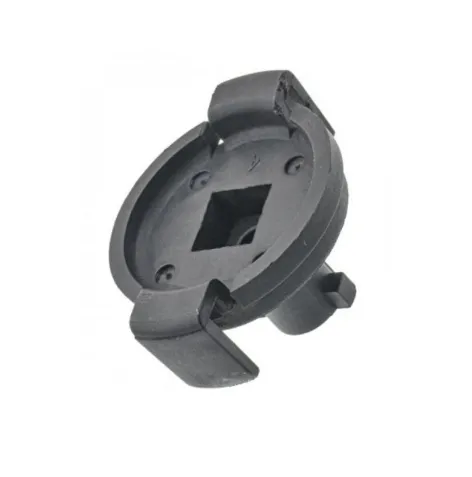Fixing the Leak: Choosing the Right Oil Plug for a Secure Seal
Your engine's oil plug may seem like a simple bolt, but it plays a crucial role in sealing your oil pan and maintaining proper oil pressure. A failure in this tiny component—especially due to an oil plug stripped thread or poor fit—can lead to dangerous oil leaks and engine damage.

A healthy oil system depends on a properly seated and secure oil plug. Over time, repeated oil changes, improper torque, or cross-threading can wear out the plug or damage the pan’s threads. This can result in slow leaks or a plug that won’t hold tight anymore. Knowing when to consider an oil plug replacement or switch to alternatives like a rubber oil drain plug or universal oil plug can save your engine from serious harm.
The Right Fix: Replacing or Repairing a Damaged Oil Plug
Let’s start with what happens when an oil plug is stripped. In most cases, the plug no longer threads securely into the oil pan, which can allow oil to seep out slowly—or worse, pour out rapidly while driving. There are several solutions depending on the severity of the damage.
Oil Plug Replacement
A standard oil plug replacement is the simplest fix if the plug itself is worn, rounded, or leaking. Replacement plugs are inexpensive and easy to install. Be sure to:
Match the correct size and thread pitch
Use a new washer or gasket
Torque to manufacturer specifications
If the oil pan threads are still intact, a new plug usually solves the problem. But if the threads in the pan are damaged, you may need to go further.
Rubber Oil Drain Plug
When pan threads are completely stripped or a proper repair isn't immediately possible, a rubber oil drain plug can act as a temporary or semi-permanent fix. These plugs expand when tightened, sealing the oil pan hole without using threads.
Benefits of a rubber oil drain plug:
Installs without tools
Seals effectively in stripped-thread scenarios
Ideal for emergency repairs or older vehicles
However, rubber oil drain plugs are not designed for long-term use in high-performance or high-temperature engines. They’re best as a stopgap measure until a proper repair can be made.
Flexible Fit: Universal Oil Plug Options
For shops, multi-vehicle households, or DIYers who work on a range of engines, a universal oil plug can be a convenient and efficient solution. These plugs are designed to fit a variety of oil pan thread sizes and styles.
Why choose a universal oil plug:
Ideal for quick fixes or when exact specs are unavailable
Often includes multiple sealing washers
Can be reused if designed with quality materials
Some universal plugs also come with magnetic tips to catch metal shavings, helping to keep oil cleaner and protecting engine internals. That said, “universal” doesn’t mean “perfect fit”—always test for a secure seal and check for leaks after installation.
In cases where even universal plugs can’t seal due to thread damage, self-tapping plugs or thread repair kits may be the next step. These options re-cut or reinforce threads in the oil pan and allow continued use of a standard-size plug.
Best Practices for Oil Plug Maintenance and Installation
To prevent issues like a stripped oil plug, it’s important to follow proper maintenance techniques during every oil change:
Use the correct tool: Avoid using adjustable wrenches or pliers that can round off the head
Torque properly: Over-tightening is a leading cause of stripped threads
Replace gaskets: A fresh washer or gasket ensures a leak-free seal
Inspect threads: Clean both the plug and the oil pan hole before installation
Use thread sealant only when specified: Most plugs are designed to seal without it
Replacing or repairing an oil plug is a small task that can prevent major headaches. Once you've selected the right part—be it a rubber oil drain plug, oil plug replacement, or universal oil plug—be sure it seals completely before driving the vehicle.
Whether you're dealing with a stripped oil plug or simply want a more convenient or flexible replacement, knowing your options is key. A standard oil plug replacement can solve most issues, while alternatives like the rubber oil drain plug or universal oil plug offer practical fixes for tricky situations.
Don't let such a small component become a big problem. Choose the right solution, install it correctly, and you’ll keep your oil system leak-free and your engine protected.
-
Seal 12x20x5: Precision Radial Shaft Seals for Industrial Reliability
Akụkọ Nov.24,2025
-
Seal 12x18x5: Essential Guide to Specifications, Applications & Vendors
Akụkọ Nov.24,2025
-
Understanding Seal 12 20 5: Applications, Specifications & Industry Insights
Akụkọ Nov.23,2025
-
Durable Oil Seal 85x110x12 – Reliable Sealing Solutions for Industry
Akụkọ Nov.23,2025
-
Durable and Precise Oil Seal 75x95x10 for Efficient Machinery | YJM Seal
Akụkọ Nov.22,2025
-
Durable Oil Seal 75x100x10 for Reliable Industrial Performance | YJM Seal
Akụkọ Nov.22,2025
-
High-Quality Oil Seal 65x90x10 | Durable & Reliable Sealing Solutions
Akụkọ Nov.22,2025
Ụdị ngwaahịa















